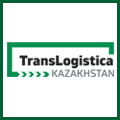In striving for greater awareness and usage of the CTU Code in order to improve safety in the intermodal supply chain, the Cargo Integrity Group (CIG) has published its Quick Guide to the Code, and its accompanying Container Packing Checklist, in Arabic, Chinese, English, French, Russian and Spanish
The five organisations[1] that are collaborating in CIG are dedicated to achieving greater levels of safety, security and environmental performance within containerised global trade. The production of a Quick Guide to the IMO/ILO/UNECE Code of Practice for Packing of Cargo Transport Units (CTU Code), along with a Checklist of actions required of those packing cargo in freight containers, is pivotal to achieving safe and secure transport.
Now the Quick Guide and Checklist have been translated from the original English into each of the other United Nations official languages and are available for download HERE
In announcing the news, Peregrine Storrs-Fox, Risk Management Director of insurer TT Club commented, “We must have higher standards of cargo integrity, if we are to arrest safety deficiencies in the supply chain – most vividly demonstrated by the too frequent occurrence of container ship fires. This means those in warehouses and manufacturing facilities who pack and secure cargo in containers, as well as shippers and forwarders preparing documentation and declarations that describe the goods in detail, must take responsibility to ensure adherence to safety guidelines. The CTU Code covers such roles and practices and one of the primary aims of CIG is to promote its universal use. The Quick Guide has distilled the Code, our multi-lingual versions will help disseminate it.”
The Group is planning further translations. This is to create a better understanding of the complex dangers that may result from poorly packed or mis-declared cargo. The flexibility of containerised trade, and its efficiency in the movement of goods means individuals, many kilometres from the ocean, and with little knowledge of maritime operations, or indeed other modes of transport, are tasked with packing containers with a hugely varied range of goods. Enabling access to safety guidelines, in their own language is crucial.
“If a product is packed in an incorrect way, it is usually because the packers have not been properly trained or informed about the potential risks,” commented Richard Steele, CEO of the association representing cargo handling organisations, ICHCA International. “The goods involved in initiating fires, stack collapses and vehicles roll-overs may not always be the more obvious hazardous chemicals. Badly secured steel coils, poorly stowed barrels of any liquid or inappropriately packaged charcoal could all result in incidents of serious injury, or even fatalities as well as significant cargo and property damage. Such understanding must surely be improved by a wider implementation of the CTU Code.”
In addition to these efforts, the CIG partners are seeking changes to the relevant regulatory requirements in order to improve their effectiveness. It hopes to encourage monitoring of packing performance through cargo screening and more effective container inspection regimes. CIG’s overall aim is to work with other industry and governmental stakeholders to instil a better understanding of safe cargo packing and handling practices throughout international supply chains.
Source ICHCA Press




.jpg)






